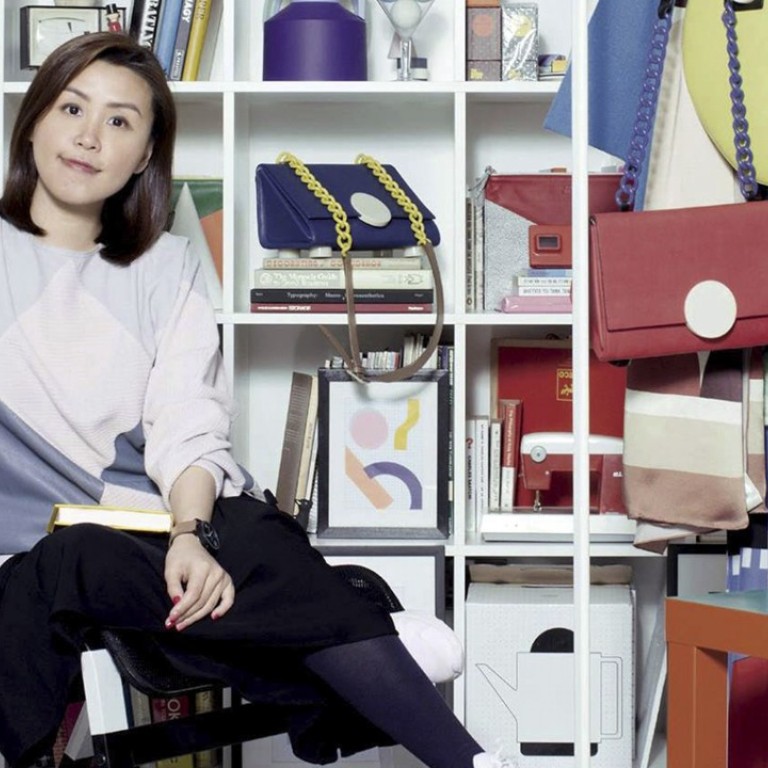
How Hong Kong’s handbag designers are holding their own
Where once high-end luxury brands such as Hermès and its iconic Kelly bag made the ultimate objects of desire, now increasing numbers of Asian shoppers aim for local niche accessories to make a statement
A luxury handbag doesn’t carry the same cachet it once did in Hong Kong. There was a time when Hermès, Louis Vuitton or Chanel were the must-haves but today’s shoppers prefer niche, independent and accessible brands.
“I’ve noticed that new brands are introducing themselves outside the traditional aspirational model that was once dominated by luxury players,” says Fiona Kotur, the Hong Kong-based founder of accessories brand Kotur. “People are looking for brands with a more personal approach, designers with a story and generally more quirky products. Luxury brands were about image, but these brands have a new message – one of individuality, authenticity and creativity.”
When Kotur founded her handbag line in Hong Kong in 2005, she was one of a handful of designers intent on building a successful “global” brand from Asia. Being based in Hong Kong had advantages, including proximity to manufacturing in China, but it wasn’t a strong selling point in an accessories market dominated by European and American labels. That’s changing as more Asian brands emerge, many of them founded in Hong Kong.
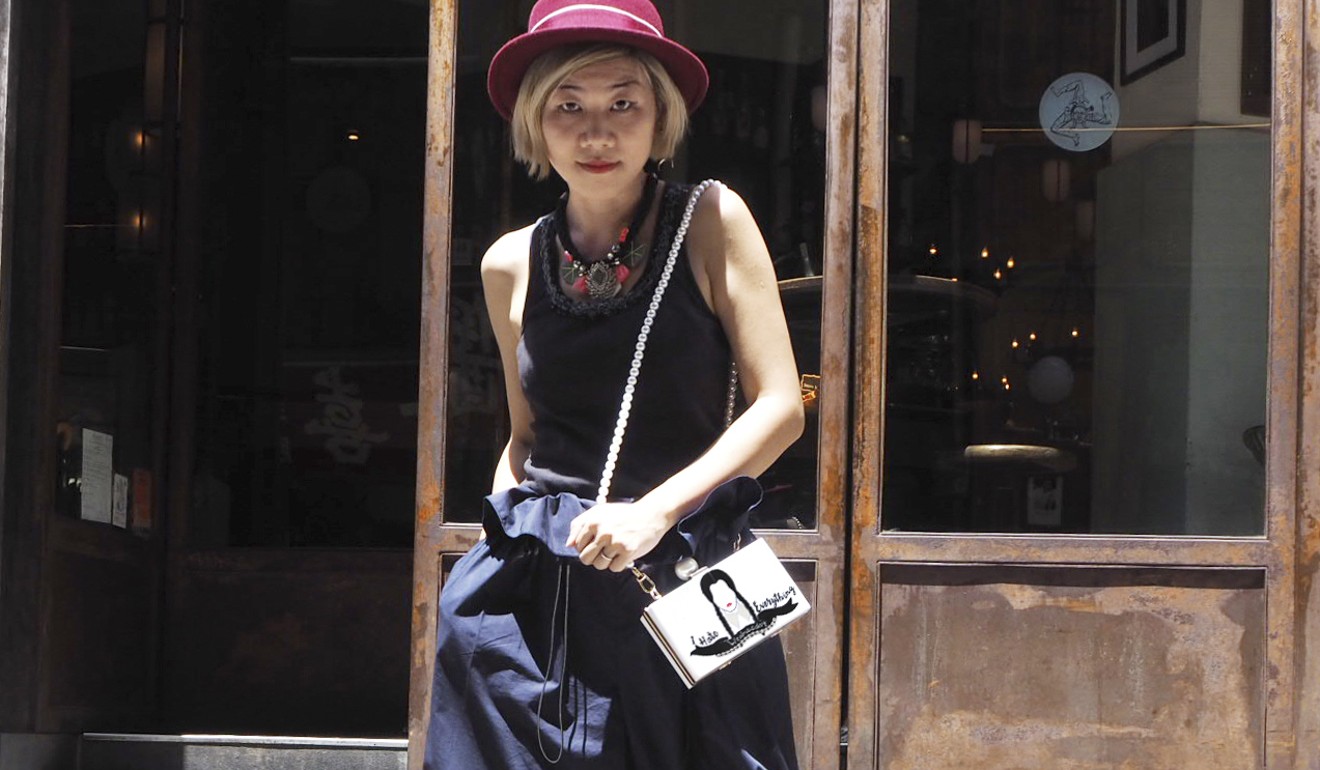
“Since launching in 2008, I think the accessories market has become more diverse and the advent of social media and online shopping has given customers more options,” says Michelle Lai, founder of Hong Kong brand Mischa. “Handbags are no longer objects of desire in the same way that we used to save up for a Kelly bag, but more companions for people’s everyday adventures,” she says.
“I think European or American brands will still have mass appeal and a head start when it comes to launching in the Asian market, but that’s not to say that brands born in Asia can’t have the same success on their home turf.”
Cecilia Ma is one brand that has been successful at home and overseas. She launched her eponymous label in 2011 featuring only ready-to-wear, but added accessories two years later. Her handbags became an immediate success with the Instagram generation, thanks to their quirky and playful aesthetic.
“People are bored with everything from the high street to luxury fashion. They don’t want to pay to buy something unless it’s truly unique. Our bags are different in that they are entirely handmade and hand-painted. Nothing is mass produced – it can take anywhere from four to 10 hours to paint one bag,” says Ma.
Ma’s handbag line has now expanded to include seven collections, each updated every six months. Predominantly featuring clutches, the bags are based on whimsical themes or stories ranging from the circus and Hollywood movies, to Alice in Wonderland, with prices ranging from HK$1,500 (US$192) to HK$3,000. Stocked in hip boutiques like Liger, her customers hail from all over the world including Europe, Japan, Korea and of course Hong Kong and mainland China, which accounts for about 40 per cent of her market base.
“Hong Kong people aren’t looking for luxury brands when it comes to their handbags. Once you price your products higher there is way too much competition. This segment of the market is a sweet spot for us,” she says.
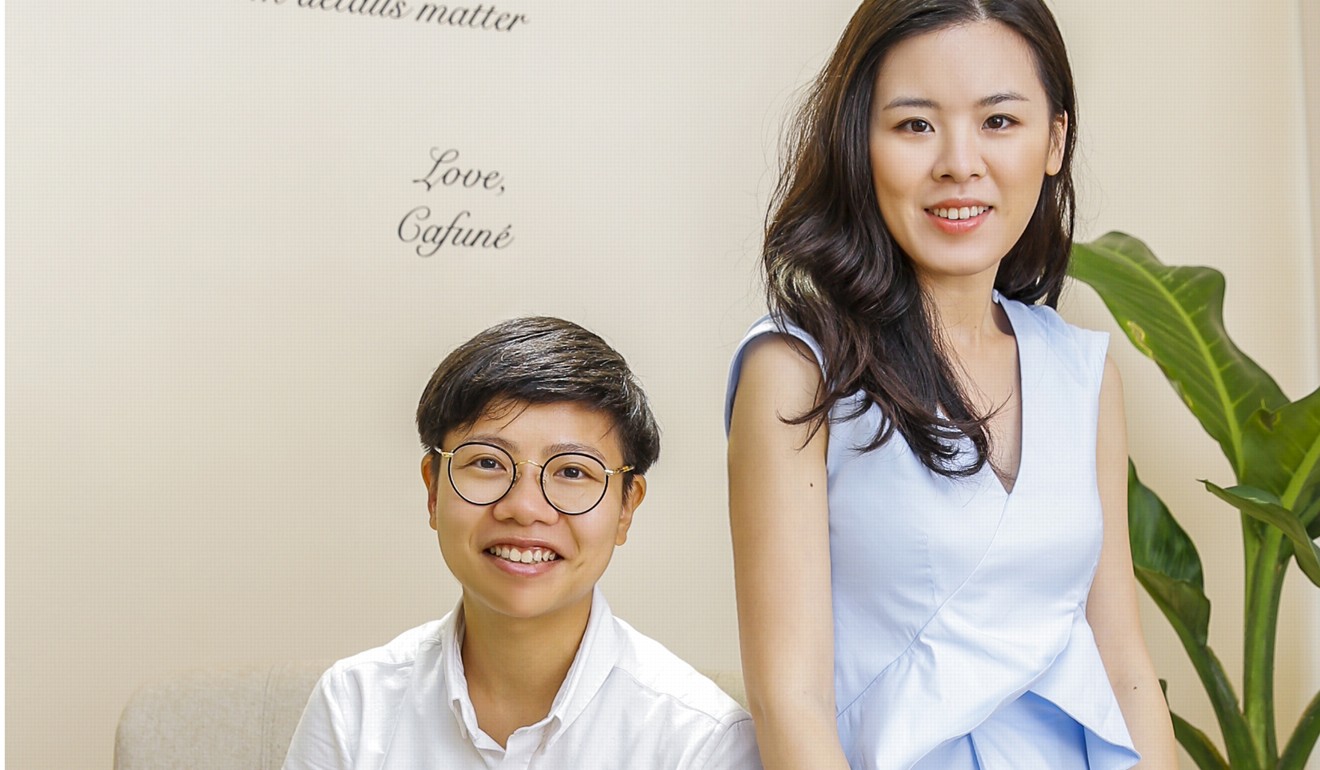
“We noticed a lot of handbag brands with a contemporary price point coming in from overseas. While locals still like to invest in luxury brands, we felt there was a gap for something new that marries good quality and good design. We want to change the accessories game here,” she says.
Free from logos and monograms, Cafuné’s design details stand out, from the circular hardware to their use of unique materials, including marble. The latest collection features styles such as the geometric inspired Edge crossbody and Cube tote, while the Basket Bucket is a refined version of the bucket bag. Prices range from HK$2,000 to HK$5,000.
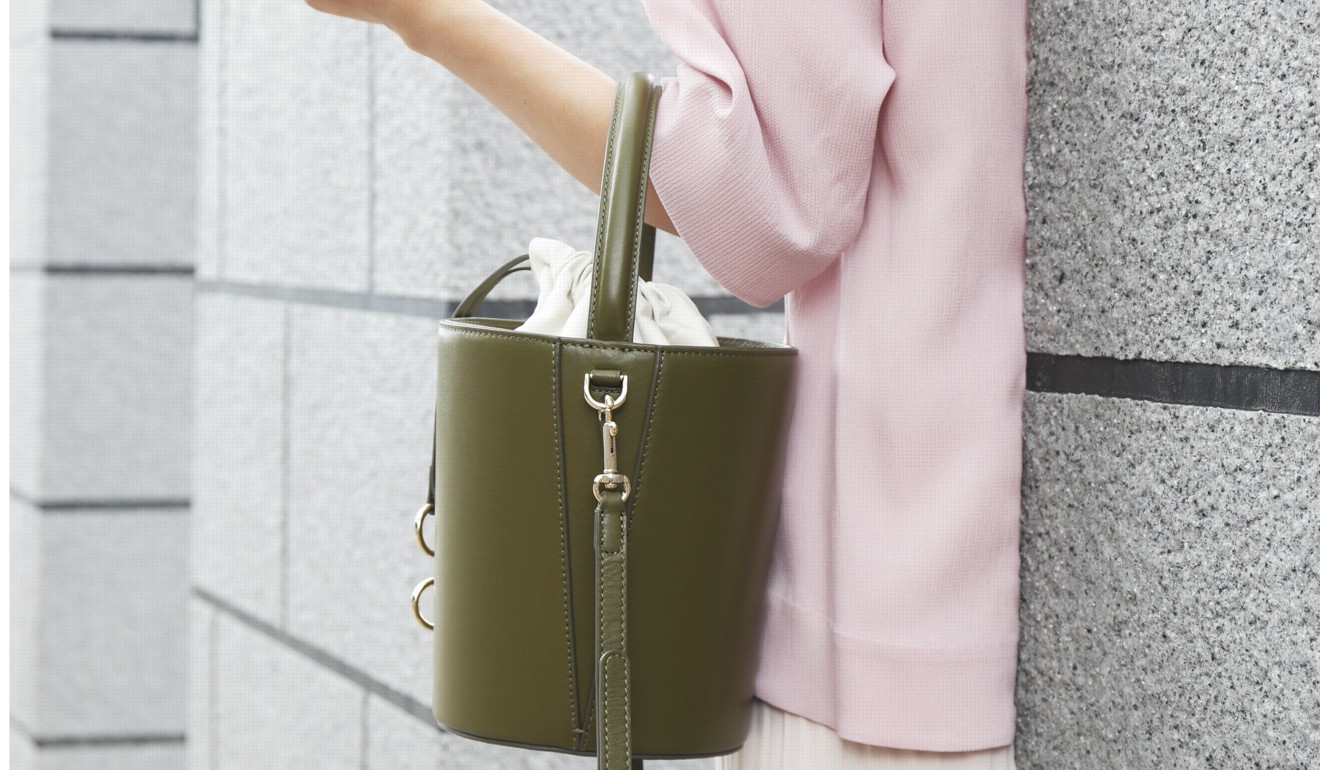
Striking design is also a selling point for Matter Matters, a brand founded by graphic designer and London College of Fashion graduate Flora Leung in 2013. Inspired by art movements such as art deco and Bauhaus, the line features fun, geometrical shapes ranging from shoulder bags to pouches, covered in contrasting colours.
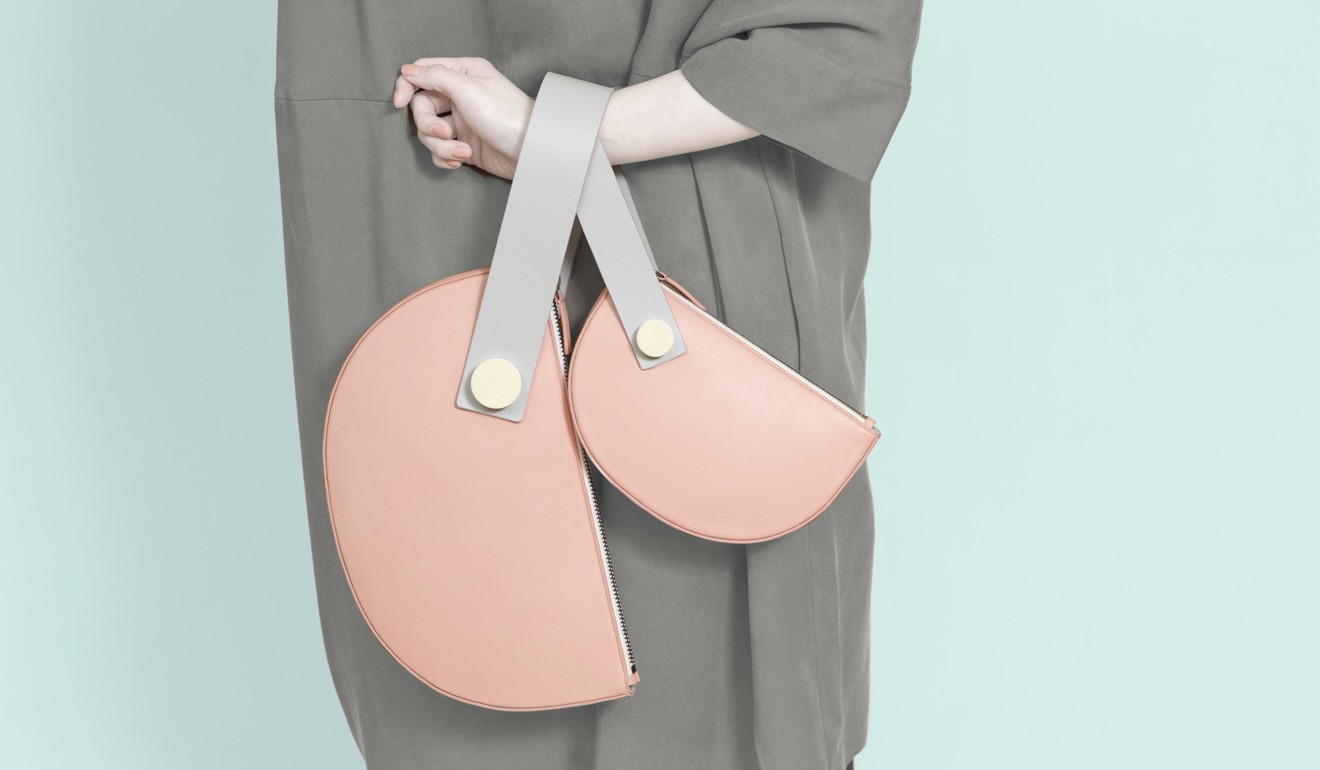
Initially Leung had trouble selling the line due to the brand’s Hong Kong provenance. It took some perseverance but it has now been picked up by retailers including Dong Liang in Shanghai and yoox.com.
“Buyers loved the design, but they cared more about where I came from, or where the product is made. It was frustrating. My first order came from a museum design store in Paris, and then Asian retailers followed. The line is popular with a generation of students who study abroad but who are looking to buy something different and new, that expresses their personal style and taste. They don’t care about where [the brand] is stocked – they are coming for the design,” she says.

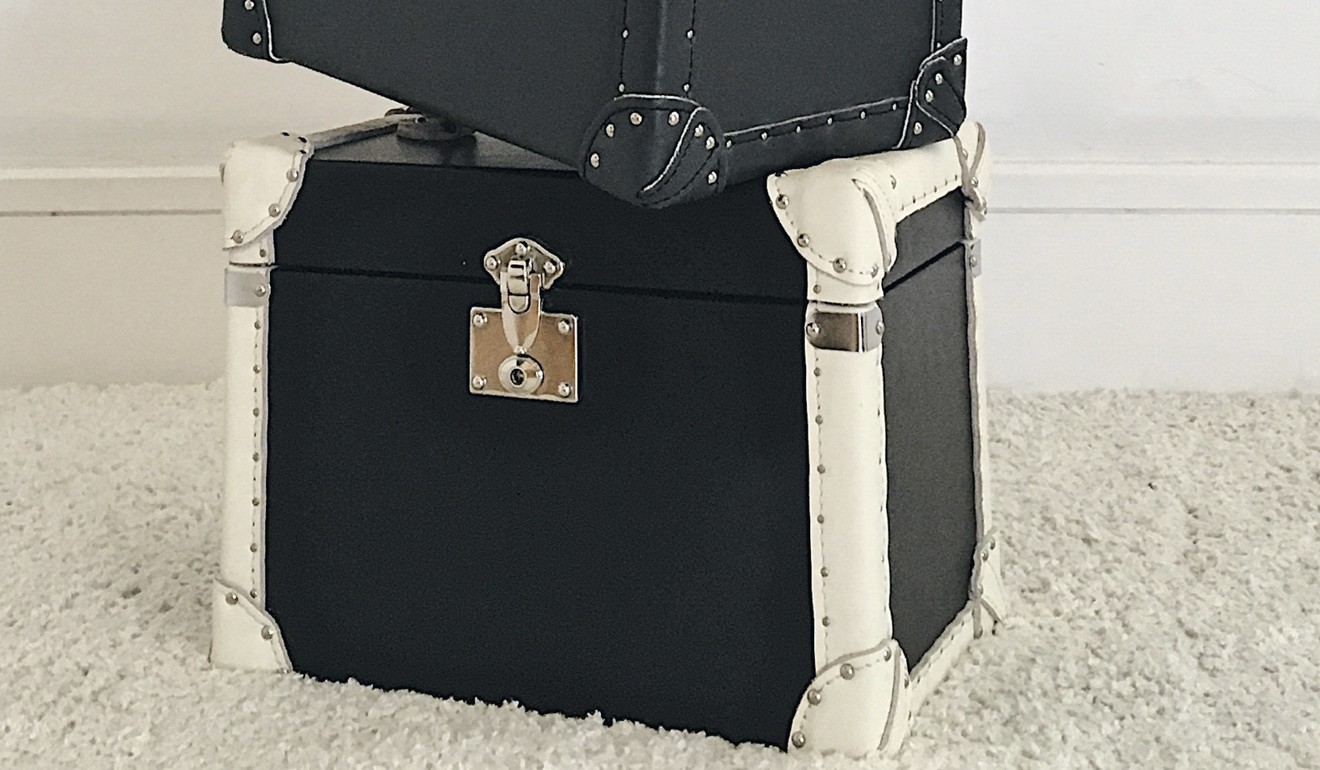
“I could never make these trunks at this price point in Italy or other parts of Europe. Being a designer based in Hong Kong has so many advantages – I have great suppliers who don’t impose too many minimums. Because of that I can custom make a piece within eight to 10 weeks. The quality is on par with many overseas brands, which is the most important thing for the Hong Kong customer,” says Lawless.

